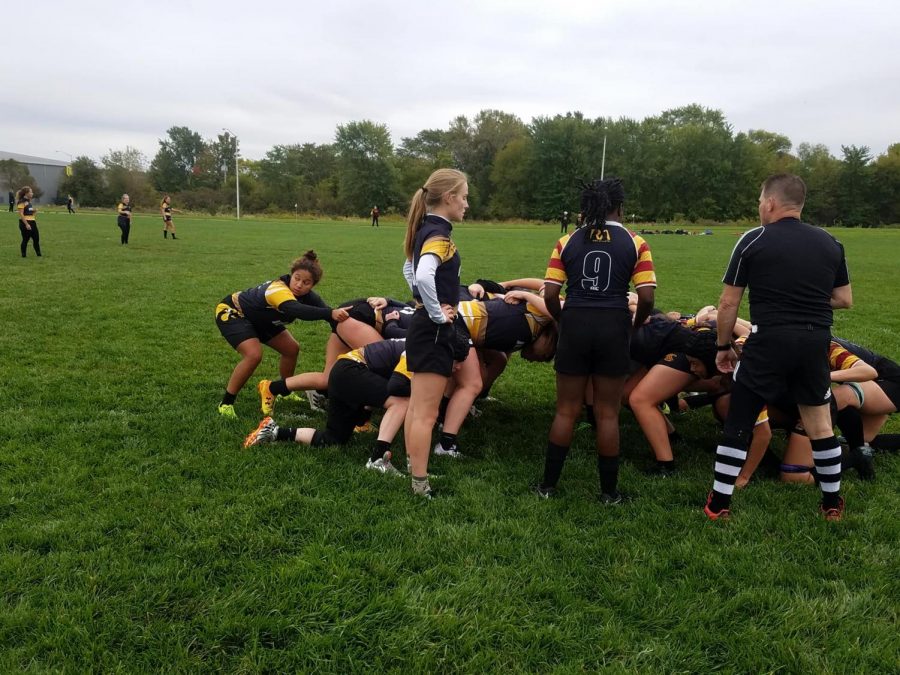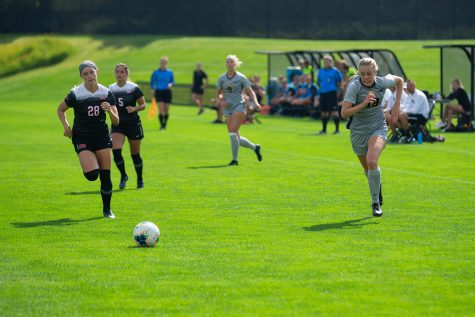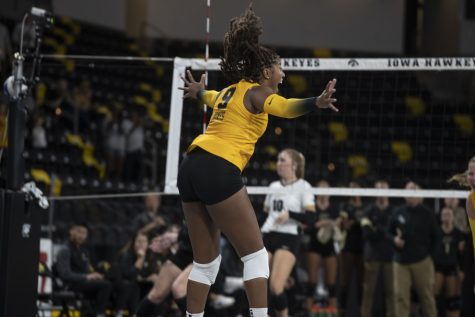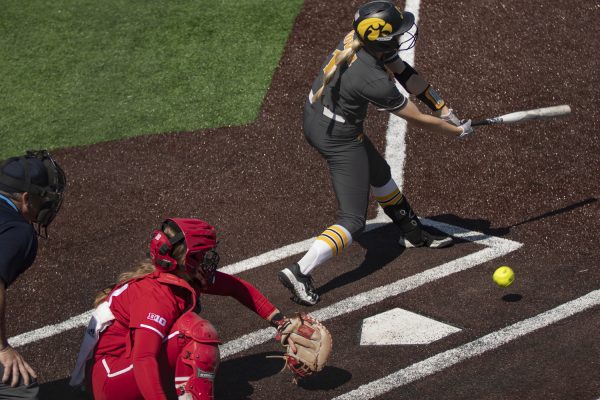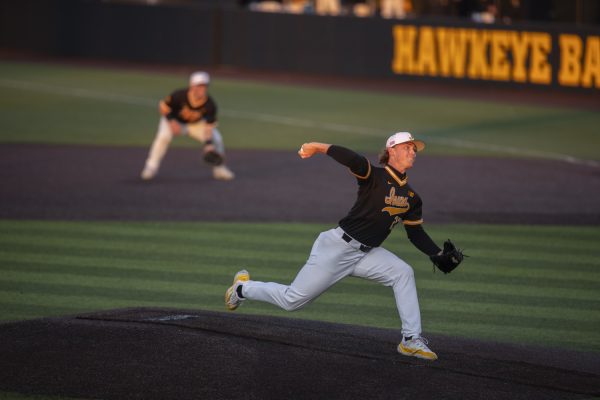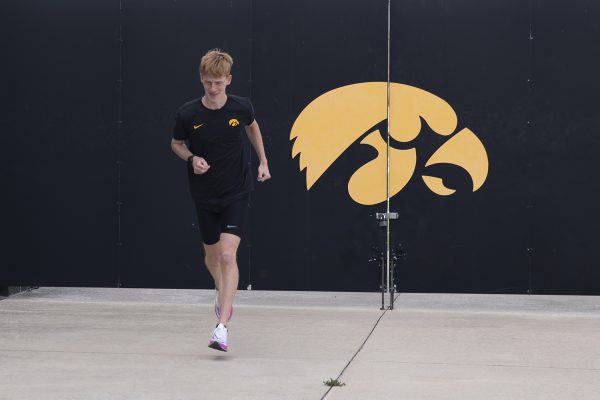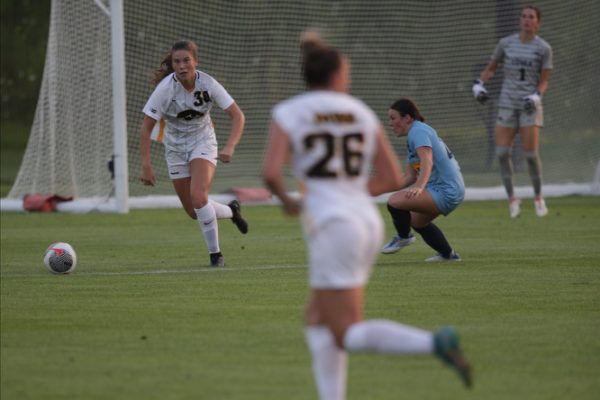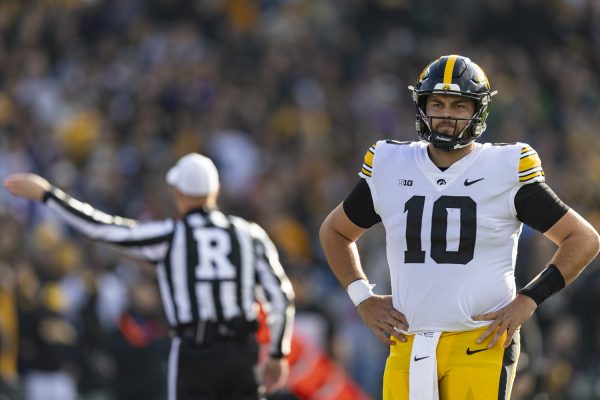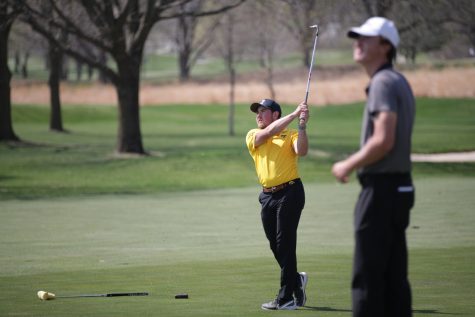Iowa women’s rugby club aims to become a varsity sport
The university does not offer a full-contact sport for women at the varsity level.
October 28, 2020
After past failed attempts to reach out to the Iowa athletics department, the Iowa women’s rugby club is taking legal action to attempt to become an NCAA varsity sport at Iowa.
Iowa senior Miranda Vermeer, president of the women’s rugby club, was added as a plaintiff in the Title IX lawsuit that four women’s swimming and diving members brought against the University of Iowa.
The lawsuit, originally brought against the university on Sept. 26 and amended on Oct. 16, calls for the reinstatement of the women’s swim and dive team and the institution of a women’s rugby and women’s wrestling team at the NCAA varsity level.
Women’s rugby is classified as an “emerging sport” by the NCAA – seven Division I schools offer the sport at the varsity level, but not enough for the NCAA to sponsor a championship series. The threshold for NCAA championship status is 40 teams.
Vermeer said James Larew, the attorney for the lawsuit, reached out to her and other women’s club teams to see if they wanted to be added to the complaint. Although she is the one from the team named on the lawsuit, she said that it is a group effort for the entire team.
One reason that Vermeer decided to take legal action was because of the past failed attempts by members of the team to get additional funding or status from the athletics department.
Former captain and president Lucinda Williams, who is now a first-year graduate student at Iowa and still a member of the team, said that she almost filed a Title IX complaint with the university a couple years ago.
Williamson specifically pointed out the lack of full-contact sports for women at Iowa. While men have football and wrestling at the varsity level, she said, women at Iowa do not have anything comparable.
“My biggest thing is Title IX is all about having equality to opportunity for women in sports,” Williamson said. “Yeah there’s opportunity for us to go play sports, but I can’t walk on to a football team and play full contact, the same with wrestling. I feel like the big thing that differentiates us is that we are a full-contact sport for women, and I don’t think that’s offered at the collegiate level at all.”
When she first reached out, Williamson was looking for any kind of help for the team. Because it is a club sport, all members of the team need to pay to play, and a main reason that women leave the team is because they cannot afford to play. The team also sometimes has to cancel practice simply because they can’t find a place to practice.
RELATED: Women’s swimmers amend Title IX complaint
“We don’t need anything fancy, we just need a field,” Williamson said. “It kind of just boils down to those little basic things that even at the club level we’re not able to get, and I think with even like, not even going varsity but the university’s recognition, if we could start getting like those basic things it would really help elevate the sport itself.”
In terms of popularity, Vermeer said she thinks that colleges are behind high schools in recognizing the sport. In Des Moines, where she went to high school, women’s rugby has taken off, but women don’t see a future in rugby after high school because of the lack of opportunities in college.
Vermeer also said that she agreed to join the lawsuit for the sake of women’s sports in general.
“I feel like any woman in a sport generally broadly cares about women’s sports in general,” Vermeer said. “Because I think as a community, you’ve faced more barriers than maybe men do, so it creates more of a community of women in sports, instead of just women in rugby.”
Although she said the main goal of the lawsuit is to get the women’s swimming and diving team reinstated, she thinks Iowa has the opportunity to be a leader in the sport at the collegiate level.
Vermeer said that she understands that the athletics department is facing financial hardships because of COVID-19, but now is not a time to backtrack in terms of opportunities for women’s sports.
Rugby club member Klaire Harris pointed out that despite Iowa’s athletics department having a $40-$60 million deficit this fiscal year, Iowa football coaches still got scheduled yearly raises.
“Why is that happening when we have sports that have even fundraised their own money and have the bases that want to build it?” Harris said. “We understand that football does bring in money, but we’re not going to bring in money if we never get the chance to.”
Williamson agreed, and said that even though she doesn’t know exactly where the money comes from, they know that the athletics department has it.
“When those moments happen, it definitely feels like a slap in the face,” Williamson said. “We’re begging for pennies, and then they turn around and obviously have the money… it’s the not even getting a thought, I guess.”



